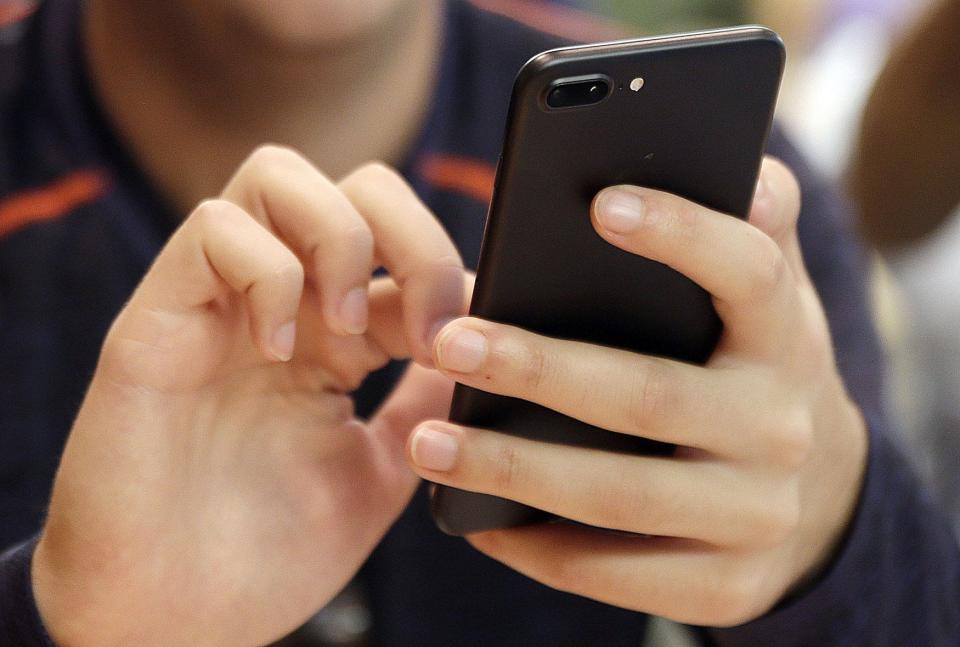Facebook, Instagram, TikTok, Youtube targeted as Wicomico schools join class action lawsuit
The unprecedented social media class action lawsuit now includes the Wicomico County Board of Education in the growing list of plaintiffs.
The Feb. 7 filing in U.S. District Court for the District of Maryland names Meta Platforms, Inc., Facebook Payments Inc., Siculus, Inc., Facebook Operations, LLC, Instagram, LLC, Snap Inc., TikTok Inc., TikTok, LTD., TikTok, LLC, Bytedance, LTD., ByteDance, Inc., Google LLC and YouTube, LLC as defendants. The suit alleges continued usage of social media creates "a deterioration in the mental well-being of the county’s student population."
Harford, Howard, Montgomery and Prince George's counties have already also joined 500 school systems across the country claiming similar drawbacks to students overusing social media. There is also no cost to the Wicomico County Board of Education for joining the suit.
"In this county, we're certainly seeing an increase in mental health needs in our students and also the need for us to expend additional resources to address them," said Micah Stauffer, superintendent of Wicomico County Public Schools. "Joining this lawsuit is us saying we're holding these companies partly responsible for these student needs. It also says those companies are also partly responsible for the solutions. Any funding received through this lawsuit can be put towards the resources needed to help our students."
Wicomico schools chief: Social media actively targeting students
According to Stauffer, social media companies are actively targeting students to keep them engaged on social media for longer spans through mobile phones and other devices in the name of profit. Mental health issues stemming from its use, he added, include:
depression
anxiety
lack of focus
and has detrimental impacts on a student's academic success
"Even national surveys completed by teens themselves say the overuse of social media has negative impacts on their self-image and their view of the world around them. Those are all the needs we have to address as a school system to effectively help students learn," Stauffer said.
More on social media and sextortion FBI takes aim at sextortion as it's on rise in Maryland, offers parents advice
Social media usage: 'Brain development a critical factor to consider'

In 2023, the U.S. Surgeon General’s Advisory published "Social Media and Youth Mental Health," a comprehensive study on the positive and negative effects of social media on the developing brain.
Their data underscored that up to 95% of youth ages 13–17 report using a social media platform, with more than a third saying they use social media “almost constantly." Although age 13 is commonly the required minimum age used by social media platforms in the U.S., nearly 40% of children ages 8–12 use social media.
The extent to which the report characterizes social media usage impacts on teens is limited to saying more research is needed to fully understand the effects of social media. Findings do cite the current body of evidence indicates that "while social media may have benefits for some children and adolescents," there are ample indicators that social media can also have a profound risk of harm to the mental health and well-being of children and adolescents.
"Brain development is a critical factor to consider when assessing the risk for harm. Adolescents, ages 10 to 19, are undergoing a highly sensitive period of brain development. This is a period when risk-taking behaviors reach their peak, when well-being experiences the greatest fluctuations, and when mental health challenges such as depression typically emerge," the report said.
More on available parental controls A guide to parental controls on Facebook, Instagram, Snapchat, more social platforms
Report finds social media impacts key parts of developing brains
The report stipulates frequent social media use may be associated with distinct changes in the developing brain in the amygdala, the area important for emotional learning and behavior, and the prefrontal cortex, the area important for impulse control, emotional regulation and moderating social behavior. Such exposure could also deeply impact concepts of social reward and punishment.
"When you're teaching a classroom and you have students with mental health needs, you have to first address them. We've hired additional social workers in recent years as well as mental health staff and school counselors all in the effort to meet the needs we're seeing in our students," Stauffer said.
In the normal course of speaking with both students and their teachers, Stauffer noted social media is becoming an increasing presence in students' lives. Often times, Stauffer stressed, mental health issues that are first seen in school soon extend to the community at large.
Business news: Dough Roller closes Ocean City location, new Salisbury candy store | What's Going There
What can parents do to monitor social media use?

The study also highlighted limits on the use of social media have resulted in mental health benefits for young adults and adults. A small, randomized controlled trial in college-aged youth found that limiting social media use to 30 minutes daily over three weeks led to significant improvements in depression severity.
Stauffer added parents are the first resource a child has when it comes to the amount of time spent on social media. Among his suggestions were:
provide a structured amount of time their children spend on these platforms;
parents should also educate themselves on the various parental controls available to them through such platforms;
parents should be aware of what their children are posting on platforms and with whom they are connecting online;
ensure their children are doing other extracurricular activities other than simply using social media;
and finally, being aware of any changes in their child's behavior that might indicate a mental health issue.
"The community and parents need to understand we are concerned about the overuse of social media and that it's leading to mental health issues in this county's schools," Stauffer said.
More on online predators and minors Oklahoma man pleads guilty to having online sexual relationship with Ocean City juvenile
This article originally appeared on Salisbury Daily Times: Social media class action lawsuit now includes Wicomico County schools

